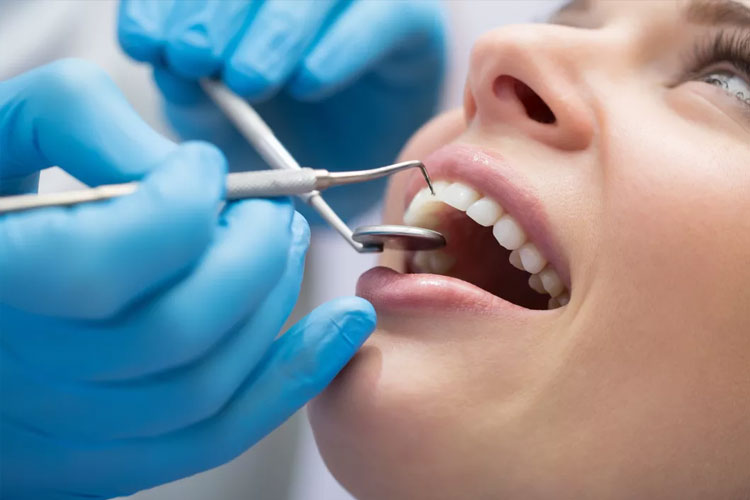Sure, here are 12 effective weight loss tips that don’t involve dieting:
There are many ways to lose weight, but many people resort to dieting in an attempt to achieve the lost weight. While dieting can be effective in helping some people lose weight, it is not always the best option for everyone. Here are 12 weight-loss tips that will help you succeed without the need for dieting.
Drink plenty of water:
Drinking plenty of water is one of the most effective ways to lose weight without dieting. Water helps to increase your metabolism, which helps you burn more calories throughout the day. It also helps to flush out toxins from your body, which can help reduce bloating and inflammation.
In addition to aiding in weight loss, drinking plenty of water has numerous other health benefits. It can help alleviate headaches, improve digestion, and keep your skin looking healthy and radiant. Plus, staying hydrated can help you feel more energized throughout the day.
To make sure you’re getting enough water each day, aim for at least eight glasses (or 64 ounces) per day. You can also try incorporating more water-rich foods into your diet such as cucumbers, celery, and watermelon. And if you find it difficult to drink plain water all day long, try adding some lemon or lime for a little flavor boost.
Practice mindful eating:
Mindful eating is a technique that promotes weight loss by reducing overeating and emotional eating. It involves paying attention to your food’s taste, texture, and appearance while avoiding distractions such as TV or phone. When you practice mindful eating, you take the time to savor each bite fully. This technique helps in reducing the speed of consumption; hence it gives your body enough time to recognize when it’s full.
Additionally, practicing mindful eating also encourages a deeper connection with our food and where it comes from. It can help us appreciate the effort put into growing, harvesting, and preparing our meals. Mindful eating is not just about what we eat but how we eat it. Eating mindfully can lead to better digestion as well as allowing for greater enjoyment of our meals.
In conclusion, practicing mindful eating is an effective way of managing weight without having to follow strict diets or calorie counting regimes; instead, one focuses on building a healthy relationship with their food while enjoying it in moderation. Mindful eating requires patience and commitment but once mastered can lead to long-lasting changes in one’s lifestyle.
Get enough sleep:
Getting enough sleep is crucial to achieving weight loss goals, as it helps regulate hunger hormones and improve metabolism. When we are sleep deprived, our body produces more ghrelin – the hormone that stimulates appetite, and less leptin – the hormone that suppresses appetite. This leads to overeating and cravings for unhealthy foods. Additionally, lack of sleep can impact our insulin sensitivity, making it harder for our body to process carbohydrates and leading to weight gain.
To ensure you get enough sleep for your weight loss journey, aim for 7-9 hours of uninterrupted sleep each night. Establishing a bedtime routine can also help signal to your body that it is time to wind down and rest. This may include reading a book or taking a warm bath before bed. Furthermore, limiting caffeine intake in the afternoon and avoiding screens before bedtime can also improve the quality of your sleep.
In conclusion, getting enough sleep is an essential aspect of any weight loss journey as it supports healthy eating habits and boosts metabolism. By prioritizing good sleeping habits such as sticking to a consistent schedule and creating a relaxing bedtime routine, you will be setting yourself up for success in achieving your desired results.
Also Read: Wellhealthorganic.com:wellhealthorganic.com:best-home-remedies-to-get-relief-from-knee-pain
Eat more protein:
One of the most effective ways to lose weight without dieting is by consuming more protein. Protein is an essential nutrient that helps in building and repairing muscles, maintaining healthy skin and hair, and boosting metabolism. Additionally, it provides a feeling of fullness and satiety, which reduces food cravings and prevents overeating.
Consuming more protein also helps in burning calories as it requires more energy for digestion than carbohydrates or fats. Some excellent sources of protein include lean meats like chicken breast, fish, eggs, beans and legumes, nuts and seeds. Incorporating these into your meals can help you feel fuller for longer periods while providing important nutrients that will keep you energized throughout the day.
In conclusion, increasing your protein intake can be a simple yet effective way to lose weight without dieting. It not only promotes feelings of fullness but also supports muscle growth while aiding in calorie burning through its high thermic effect on the body during digestion. By incorporating quality proteins into your daily meals you will feel satisfied longer while supporting overall health goals.
Choose fiber-rich foods:
Fiber-rich foods are an essential component of a healthy diet. Not only do they aid in weight loss, but they also have numerous other health benefits. Foods such as whole grains, fruits, vegetables, and legumes are rich sources of fiber. Incorporating these foods into your diet can help you feel full for longer periods and reduce the urge to snack unnecessarily.
Moreover, fiber helps regulate bowel movements by adding bulk to the stool and facilitating its elimination from the body. This reduces constipation and other digestive issues while improving gut health. Furthermore, fiber has been linked with lower levels of cholesterol in the blood leading to reduced risks of heart disease.
In conclusion, incorporating fiber-rich foods into your diet can be a simple yet effective way to lose weight without resorting to extreme measures such as fad diets or excessive exercise regimes. By regulating digestion, reducing hunger pangs and promoting heart health –fiber-rich food is an excellent addition that should form part of everyone’s daily dietary intake.
Cut down on sugar:
One of the most effective ways to lose weight without dieting is by cutting down on sugar. Sugar is one of the main culprits behind weight gain and obesity. It is highly addictive, contributes to inflammation in the body and can cause a host of health problems including diabetes, heart disease and cancer.
There are many hidden sources of sugar in our diets such as processed foods, soft drinks, fruit juices, packaged snacks and even some healthy foods like fruit yogurt. To reduce your sugar intake, start by reading food labels carefully and avoiding anything with added sugars or high fructose corn syrup.
Replace sugary snacks with healthier options like fruits, veggies or nuts. Choose water over soda or juice. Gradually decrease your sugar intake until you no longer crave it as much and give yourself permission to indulge in moderation when you do consume it. By cutting down on sugar, you’ll not only shed unwanted pounds but also improve your overall health!
Reduce your alcohol intake:
Reducing your alcohol intake can significantly aid weight loss without necessarily following a strict diet. Alcohol is known to contain empty calories that provide no nutritional value, and it can lead to increased appetite and poor food choices. This often results in excess calorie consumption, leading to weight gain.
To reduce your alcohol intake, you could consider swapping alcoholic drinks for non-alcoholic alternatives or reducing the size of your alcoholic beverages. Additionally, consuming water between each drink can help slow down the rate of drinking and reduce overall consumption.
It’s essential to note that cutting out alcohol entirely isn’t necessary for weight loss; moderate alcohol consumption doesn’t pose significant harm. However, if you’re looking to lose weight without changing your entire diet drastically, reducing your alcohol intake might be an effective strategy worth trying.
Also Read: wellhealthorganic.com:10-benefits-of-eating-roasted-gram
Take the stairs:
Taking the stairs is one of the most effective ways to lose weight without dieting. Instead of using an elevator or escalator, opt for taking the stairs whenever possible. By doing so, you’ll burn calories and improve your cardiovascular health.
In addition to burning calories, taking the stairs also helps tone your leg muscles. This not only promotes weight loss but also gives you stronger legs and better balance.
If you work in a multi-story building, try taking breaks throughout the day to climb up and down the stairs a few times. You could even make it a goal to climb a certain number of floors each day as part of your exercise routine. Not only will this help with weight loss, but it will also boost your energy levels and productivity.
Walk more:
Walking is a low-impact exercise that can help you lose weight without having to go on a strict diet. It is also an easy way to incorporate physical activity into your daily routine. Walking for at least 30 minutes a day can burn calories, boost metabolism, and improve cardiovascular health. In fact, studies show that walking regularly can reduce the risk of heart disease, stroke, diabetes, and certain types of cancer.
One effective way to walk more is by incorporating it into your daily routine. Instead of driving or taking public transportation to work or school, consider walking if possible. You could also take short walks during breaks throughout the day or after meals. If you have trouble staying motivated on your own, try finding a walking buddy or joining a local walking group for added support and encouragement.
Another way to increase your step count and overall physical activity level is by setting goals and tracking progress using a pedometer or fitness tracker. Aim for gradually increasing the number of steps you take each day until you reach at least 10,000 steps per day. This may require making small changes such as taking the stairs instead of the elevator or parking farther away from your destination when running errands. By making these small adjustments and prioritizing regular movement throughout the day, reaching your weight loss goals without dieting can become achievable through consistent exercise like walking.
Use smaller plates:
Using smaller plates is a simple and effective way to reduce your food intake without feeling deprived. When we use larger plates, we tend to serve ourselves more than we need, leading to overeating. However, using smaller plates tricks our brain into thinking we are eating a full meal when in reality, we are consuming fewer calories.
Research shows that people who eat from 10-inch plates consume about 22% fewer calories than those who eat from 12-inch plates. This means that switching to smaller plates can help you lose weight without having to follow any strict diets or calorie counting.
Moreover, using smaller plates helps with portion control and reduces the risk of overeating during meals. By visually filling your plate with less food, you may feel satisfied with the amount you have eaten even though it’s less than what you would typically consume. Therefore, replacing your large dinner plate with a small one might be an excellent way to cut back on excess calories and achieve your weight loss goals.
Keep healthy snacks on hand:
One of the most challenging aspects of weight loss is resisting the temptation to indulge in unhealthy snacks. But snacking can actually be a useful tool when trying to lose weight, as long as you choose healthy options. By keeping healthy snacks on hand, you can satisfy your hunger cravings without jeopardizing your progress.
There are many types of healthy snacks that you can keep on hand throughout the day, such as fresh fruits and vegetables like bananas or carrots. These foods are not only low in calories but also high in fiber and other essential vitamins and nutrients that will help you stay full longer. Another great option is nuts and seeds, which are packed with protein and healthy fats that will keep your energy levels up throughout the day.
Finally, it’s important to remember that staying hydrated is just as crucial as eating a balanced diet when it comes to weight loss. Drinking plenty of water or herbal tea helps curb appetite between meals while also flushing toxins from your body which may inhibit weight loss efforts otherwise. So make sure you have plenty of water bottles around at all times!
Practice stress-reducing activities:
Practicing stress-reducing activities can play a crucial role in achieving weight loss goals. When we are stressed, our body releases cortisol, which triggers the storage of fat in the abdominal area and makes it harder to lose weight. Therefore, incorporating stress management techniques can help reduce cortisol levels and promote overall well-being.
One effective stress-reducing activity is meditation. Research has shown that regular meditation can reduce anxiety and increase feelings of relaxation. It also helps lower blood pressure and improve sleep quality, both important factors for successful weight loss.
Another great activity is yoga. Yoga combines physical movement with mindfulness practices, making it an ideal way to relieve stress while getting exercise at the same time. Additionally, certain yoga poses can help stimulate digestion and promote detoxification in the body, further supporting weight loss efforts. By practicing these stress-reducing activities regularly, individuals looking to lose weight without dieting may find they have more success achieving their goals while also improving their overall health and well-being.
Conclusion
In conclusion, losing weight doesn’t have to be a daunting task. Incorporating small changes into your daily routine can lead to significant results. Drinking water before meals, adding more vegetables to your plate, and reducing the intake of processed foods are just a few examples of simple yet effective tips that can help you lose weight without dieting.
Remember, slow progress is still progress! Don’t get discouraged if you don’t see immediate results. Keep up with the healthy habits and eventually, you’ll start seeing positive changes in your body. It’s also important to listen to your body and not push yourself too hard. Over-exercising or restricting yourself too much can actually impede your weight loss goals.
Lastly, don’t forget that being healthy is not just about losing weight but also about taking care of yourself mentally and emotionally. Celebrate small victories along the way and give yourself grace when needed. With patience and consistency, achieving a healthier lifestyle is definitely attainable!
FAQ
Sure, here are some frequently asked questions about effective weight loss tips without dieting:
Q. Can I lose weight without dieting?
A. Yes, it’s possible to lose weight without dieting. You can make small changes to your lifestyle that can have a big impact on your weight, such as drinking more water, eating more protein, and getting enough sleep.
Q. Do I need to exercise to lose weight without dieting?
A. While exercise can certainly help with weight loss, it’s not necessary to lose weight without dieting. You can focus on making healthier choices in your daily life, such as choosing more nutritious foods and being more active in your daily routine.
Q. How much water should I drink to help with weight loss?
A. The amount of water you should drink can vary depending on your body size and activity level, but a general guideline is to drink at least 8 glasses (64 ounces) of water per day. Drinking water before meals can also help you eat less and lose weight.
Q. What are some good sources of protein?
A. Good sources of protein include lean meats, poultry, fish, eggs, beans, lentils, and Greek yogurt. Adding protein to your meals can help you feel fuller for longer and reduce your overall calorie intake.
Q. How can I manage stress to help with weight loss?
A. Stress can contribute to weight gain, so finding ways to manage stress can be helpful for weight loss. Activities like meditation, yoga, or deep breathing exercises can help you relax and reduce stress. It’s also important to prioritize self-care and make time for activities that you enjoy.








